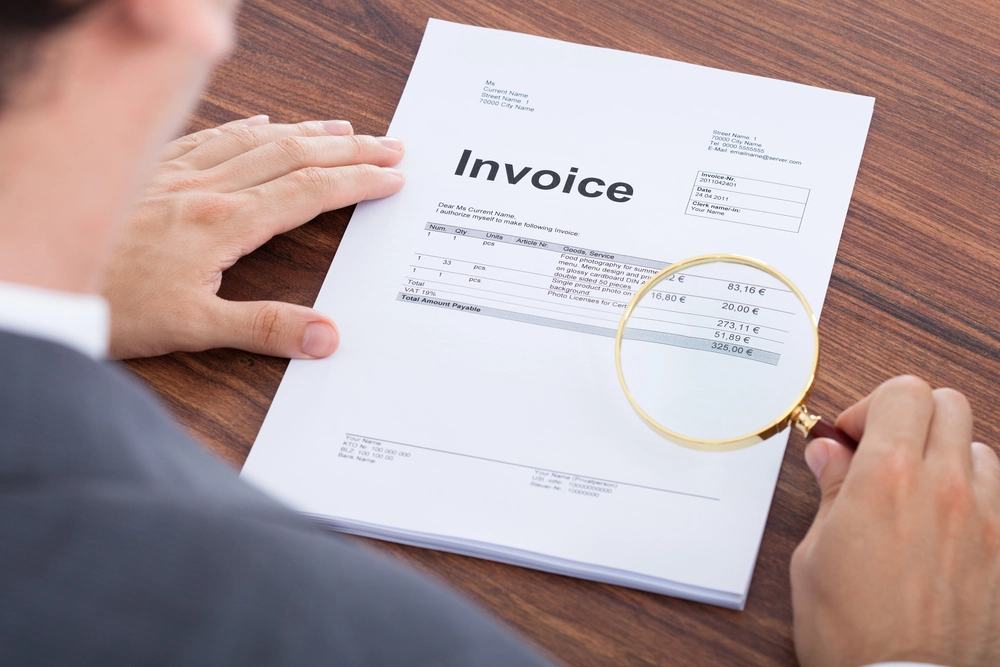CBIC issues clarification on imposition of tax demand and penalty in respect of transactions involving Fake Invoice
The issue relating to issuance of fake invoice is of the most concern to the tax department. We regularly come across the news relating to investigation by the tax department with respect to the issuance of fake or bogus invoices by the certain dealers. It has also been noticed that the department takes action and issues demand of tax and penalty from all the dealers who are involved in a chain of transaction. For example when A issues invoice to B and B further issues invoice to C without supply of goods, then in such cases generally demand of tax and penalty is raised on each person who is involved in the chain transaction without going in to facts about the nature of activity in which each person in the chain is involved.
The government has recently clarified various issues relating to applicability of demand and penalty provisions under the Central Goods and Services Tax Act, 2017 in respect of transactions involving fake invoices. Such clarification would be very help full for the officers in the field to deal with the cases of fake invoice. The clarification issued by the department is summarised herein below.
- What is Fake Invoice:
The said circular provided that when a registered persons are found to be involved in issuing tax invoice, without actual supply of goods or services or both, in order to enable the recipients of such invoices to avail and utilize input tax credit fraudulently then such person would be considered to be involved in issuance of fake invoice
-
- Illustrations
a. ‘A’ issues invoice to ‘B’ without supply of goods and services.
Person Offence Legal Action Dealer A No recovery of tax and penalty shall be
made from ‘A’ under Section 73 and 74
of the CGST Act since there was no
supply made by him in terms of Section
7 of the CGST Act to ‘B’.‘A’ shall be liable for penal action
under section 122 (1)(ii) of the CGST
Act for issuing tax invoices without
actual supply of goods or services or
both.b. ‘B’ utilises the ITC against his outward tax liability in respect of the fake invoice issued by ‘A’
-
Person Offence Legal Action Dealer B The registered person ‘B’ has availed and
utilized fraudulent ITC on the basis of
the fake tax invoice issued by A, without
receiving the goods or services or both,
in contravention of the provisions of
section 16(2)(b) of CGST Act.The demand of ITC availed without
invoice can be made from B, along
with penal action, under the
provisions of section 74 of the CGST
Act, along with applicable interest
under provisions of section 50 of the
said Act.
If the action is taken u/s 74 then no
penal action shall be taken u/s 122
of the CGST Act shall be taken.c. ‘A’ issues fake invoice to ‘B’. B passes on the ITC of fake invoice to C without supply of goods
and services.
-
Person Offence Legal Action Dealer B As there was no supply of goods or
services or both by ‘B’ to ‘C’ in respect of
the said transaction, no tax was required
to be paid by ‘B’ in respect of the same.
The input tax credit availed by ‘B’ in his
electronic credit ledger on the basis of
tax invoice issued by ‘A’, without actual
receipt of goods or services or both, is
ineligible in terms of section 16 (2)(b) of
the CGST Act. In this case, there was no
supply of goods or services or both by ‘B’
to ‘C’ in respect of the said transaction
and also no tax was required to be paid
in respect of the said transaction.No demand and recovery of either
input tax credit wrongly/
fraudulently availed by ‘B’ in such
case or tax liability in respect of the
said outward transaction by ‘B’ to ‘C’
is required to be made from ‘B’
under the provisions of section 73 or
section 74 of CGST Act.‘B’ shall be liable for penal action
both under section 122(1)((ii) and
section 122(1)(vii) of the CGST Act,
for issuing invoices without any
actual supply of goods and/or
services as also for taking/ utilizing
input tax credit without actual
receipt of goods and/or services.
- Illustrations
- Other clarifications
a. Basis of any Action: CBIC clarifies that the any action to be taken against a person will depend upon the specific facts and circumstances of the case which may involve complex mixture of above scenarios or even may not be covered by any of the above scenarios.
b. Action against beneficiaries: Board clarifies that any person who has retained the benefit of transactions specified under sub-section (1A) of section 122 of CGST Act, and at whose instance such transactions are conducted, shall also be liable for penal action under the provisions of the said sub-section.
c. Prosecution u/s 132: The Board further clarifies that in cases of wrongful/ fraudulent availment or utilization of input tax credit, or in cases of issuance of invoices without supply of goods or services or both, leading to wrongful availment or utilization of input tax credit or refund of tax, provisions of section 132 of the CGST Act may also be invokable.
Conclusion:
litigation with respect to demand of tax and penalty in cases involving fake invoices. However, a clarification was also required in respect of the action taken by the department on the genuine buyers when an investigation was carried upon a particular supplier allegedly involved in issuing fake invoices. It is a general practice of the department to issue notices to the all the buyers of the suppliers in respect of whom an investigation for issuing fake invoice is being carried upon. The present circular is silent upon this aspect.
Suggestion and feedback are welcome at caswatigupta@yahoo.com
